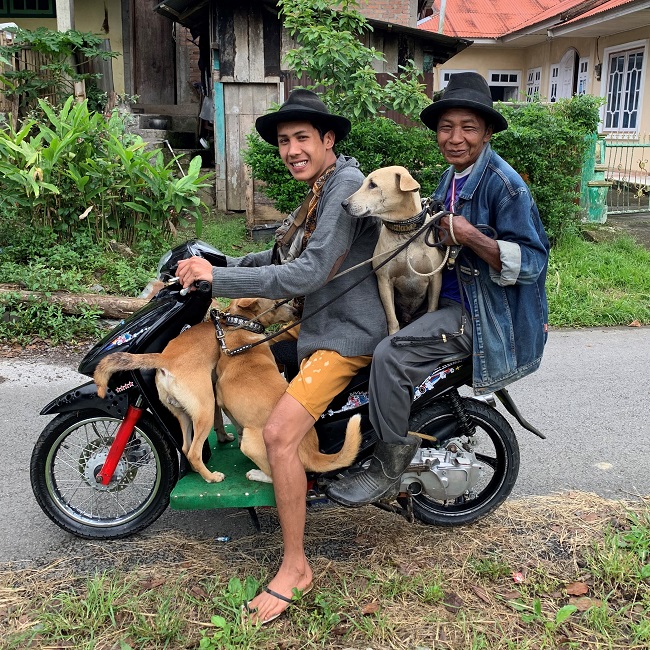Ben Gleeson
The Minangkabau, or ‘Minang’, people are a notable ethnic group from Indonesia’s West Sumatra province known for their many distinctive traditions. As a primary example, Minang identity proudly combines a devout adherence to Islam with earlier agrarian customs of clan-based matrilineal property inheritance. This unique cultural integration has long been explicitly affirmed by a vibrant indigenous intellectual discourse on local religious, legal, and social matters.
The Minang and their early customs originated in the West Sumatran highland districts of Agam, Tanah Datar, and Lima Puluh Kota before spreading to other parts of West Sumatra and throughout Indonesia. Within these highland areas, extended families traditionally occupy long houses clustered in small villages and cultivate nearby plots of farmland. Rice, the staple food, is grown on terraced hillsides maintained and cultivated for centuries using local traditions adapted to the purpose.
Since irrigation water flows downstream from one property to the next, collective water management and distribution are crucial aspects of customary village organisation. Perhaps because of this, collective approaches to other agricultural issues are also common.
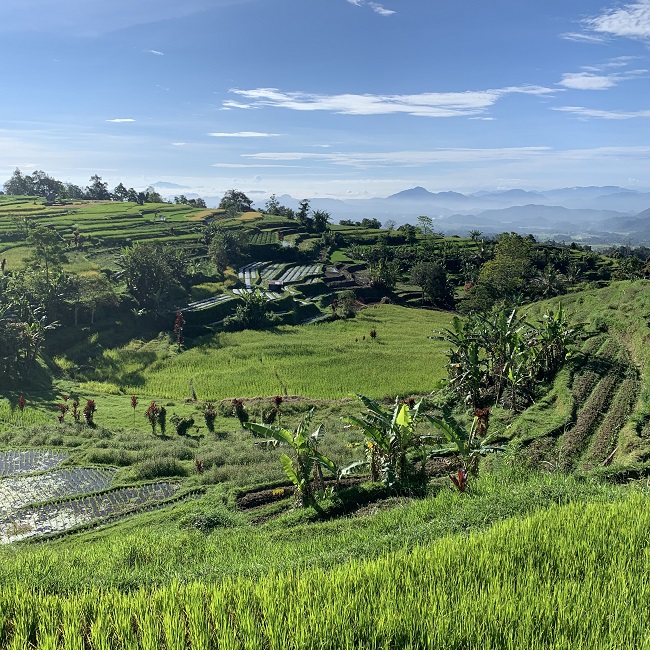
For example, foraging by wild pigs can cause widespread damage in terraced landscapes. Pigs destroy crops, disturb soil, and contaminate water sources with their waste. Worse yet, unchecked damage to terrace walls and water channels could cause erosion and divert irrigation flows, thus threatening collective water management for the entire community. As a result, the Minang have long employed a form of landscape-scale pig management via mass hunts, involving hundreds of participants and their trained pig-hunting dogs.
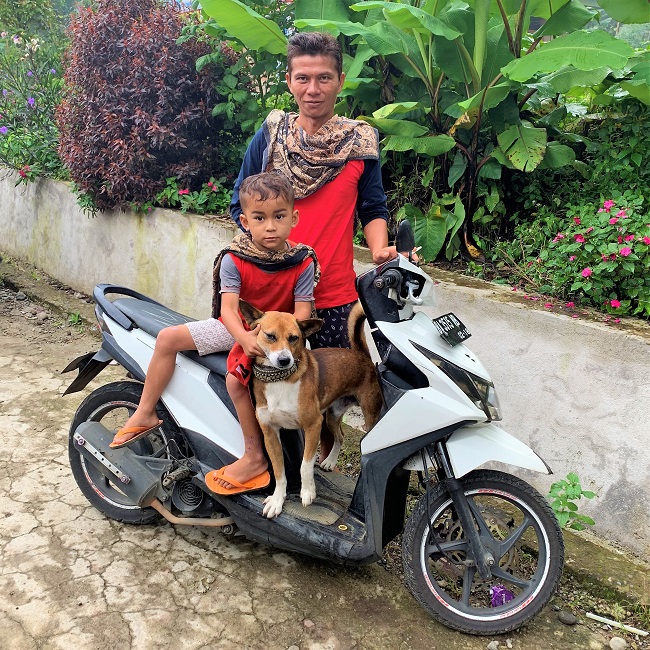
Although Islam considers both pigs and dogs haram (spiritually unclean), killing pigs and keeping dogs for a specific purpose are relatively acceptable. The Minang accept pig hunting as necessary to protect the integrity and productivity of rice terraces, and maintain the prosperity of rural communities that rely on them. Naturally, hunted pigs are never eaten, but hunts serve to suppress wild pig populations and deter them from foraging on cultivated land. Pig hunting with dogs has become an important aspect of rural Minang culture. Minangkabau hunters are recognised for this elsewhere, and are often employed to conduct hunts in other Indonesian provinces.
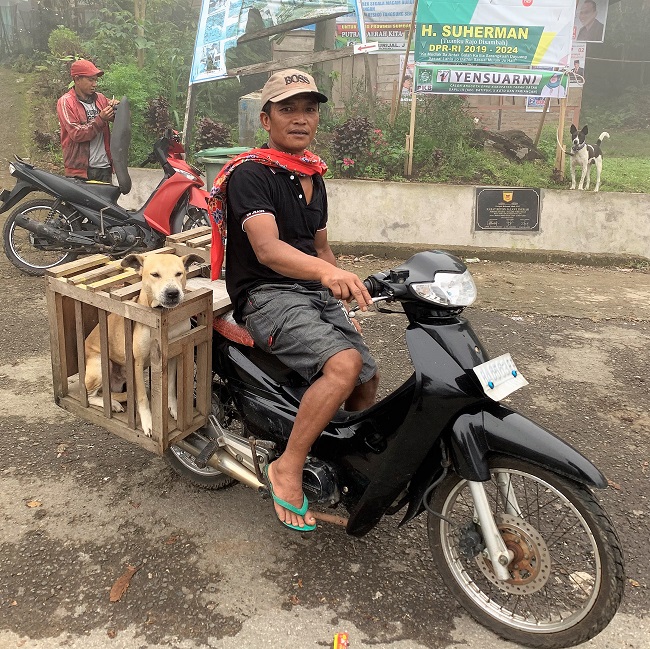
In West Sumatra, organising committees consider reports of where pigs are numerous before planning hunt locations. Hunts are usually held on Sunday mornings, and hunters often travel significant distances to attend. In villages all over the highlands, hunting dogs can be heard excitedly barking as hunters prepare to leave. The dogs travel on their owner’s motor scooters, often standing in the footwell, or held in makeshift boxes at either side of the rear seat. Hunters with many dogs may transport them in cages on the backs of cars, or in small trucks.
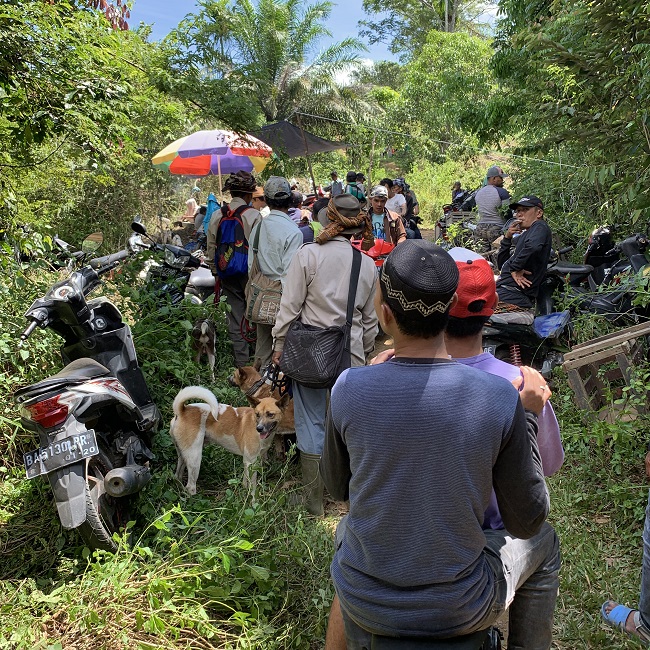
Aside from its agricultural significance, pig hunting is a popular form of recreation. Hunters attend hunts partly to socialise with family and friends. Most make an effort to dress well. This includes wearing traditional printed scarves and conspicuous belt knives. Hawkers also attend these hunts, setting up mobile kitchens and refreshment stalls. As a result, usually-quiet rural areas and secluded tracks are inundated with hundreds of colourfully dressed people, motor scooters, and barking dogs, creating an ephemeral festival in a different location each weekend.
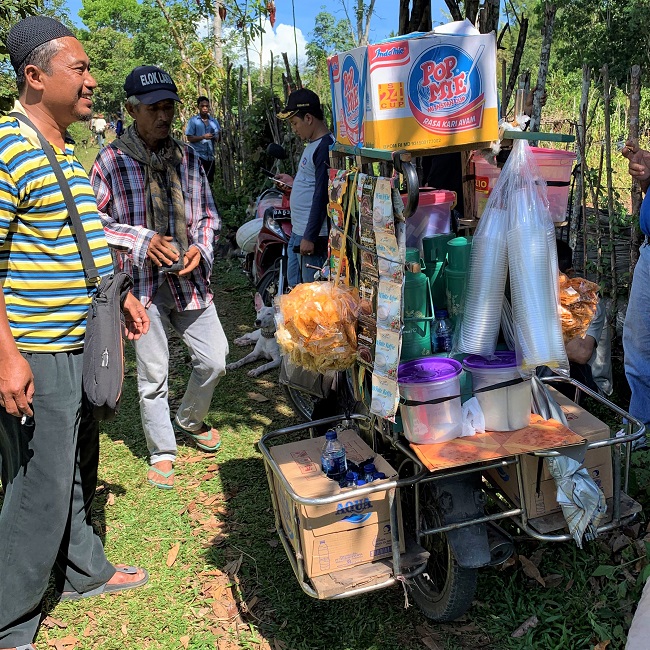
In recent times, pig hunting has been criticised for the apparent cruelty of packs of dogs catching and mauling a terrified wild pig to death. While hunters defend their actions as necessary to protect crops and livelihoods in rural communities, animal rights activists argue alternative control methods should be used. In response to cruelty concerns, the Indonesian government has implemented regulations intended to ensure animal welfare standards. Hunters are required to obtain permits, follow specific practical guidelines, and are discouraged from entering wildlife conservation areas.
Despite these concerns and increasing regulation, pig hunting remains a deeply rooted agrarian tradition in West Sumatra. Minangkabau hunters continue to see it as a necessary means to protect rural livelihoods and maintain quintessential cultural landscapes.
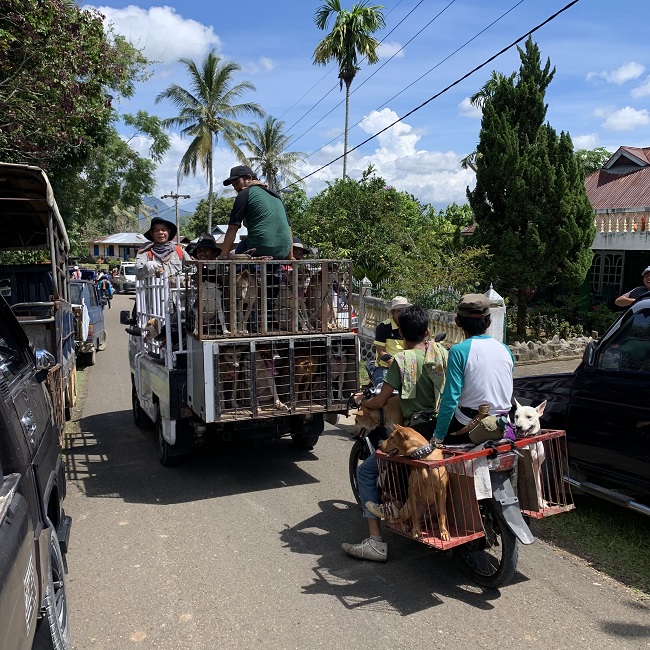
Ben Gleeson (ben.gleeson@anu.edu.au) is a transdisciplinary human ecologist whose research examines the evolution of contemporary human socioecologies. He is completing a PhD at the Australian National University's Fenner School of Environment and Society. He thanks Dr Yasrul Huda and colleagues at UIN Imam Bonjol, Padang, for their generous guidance and support.

